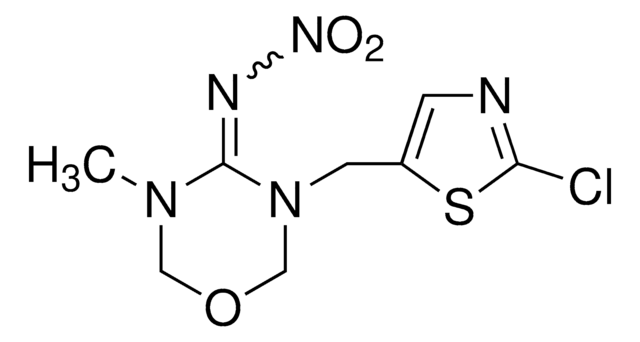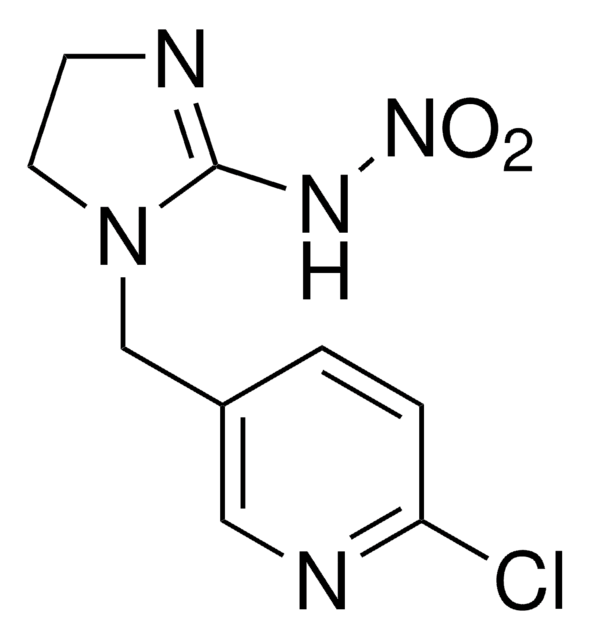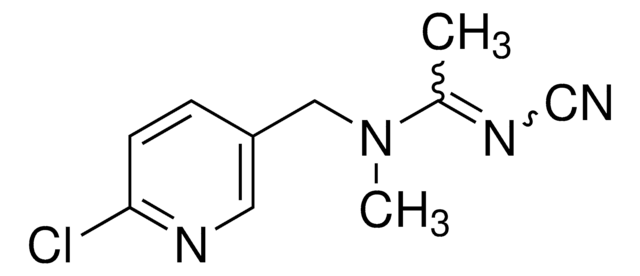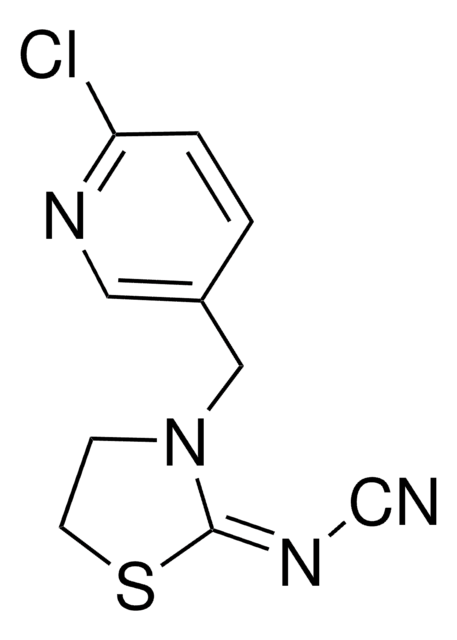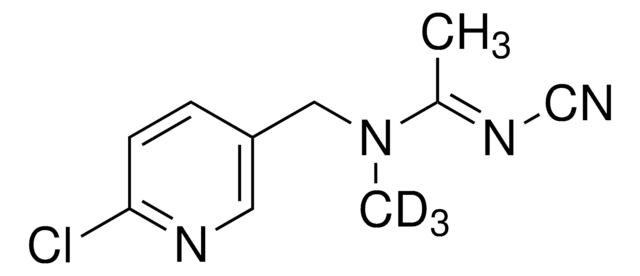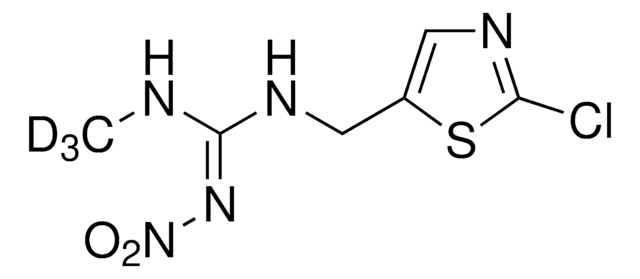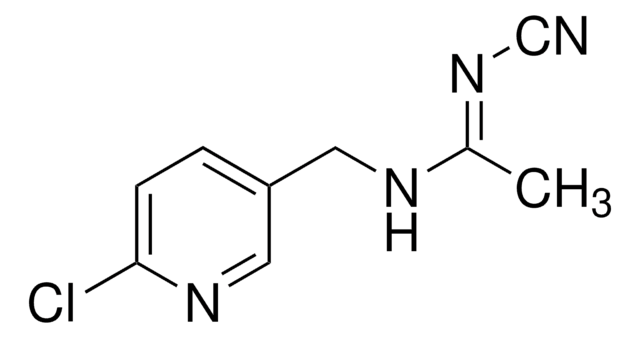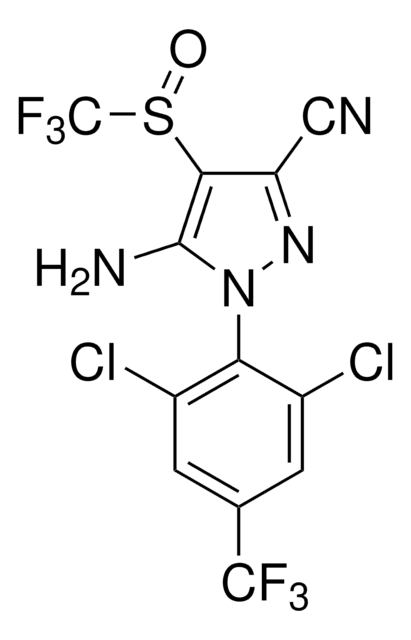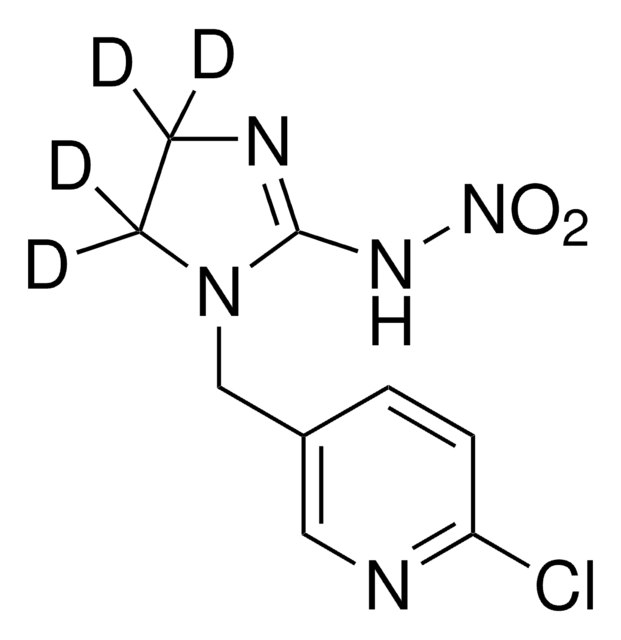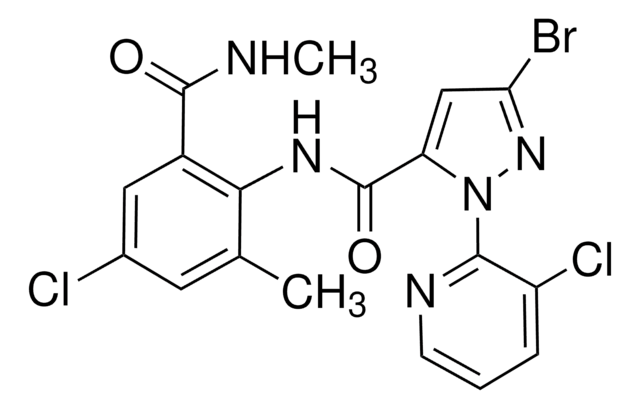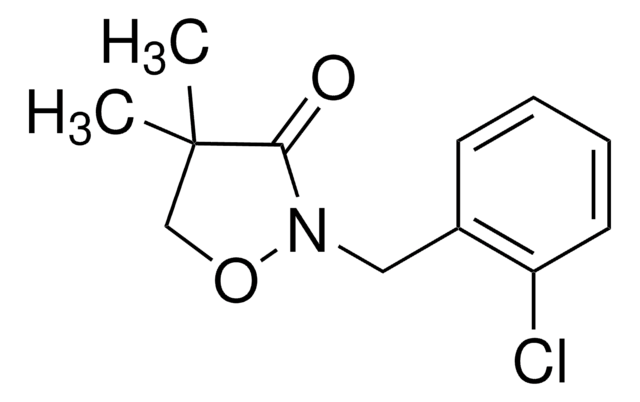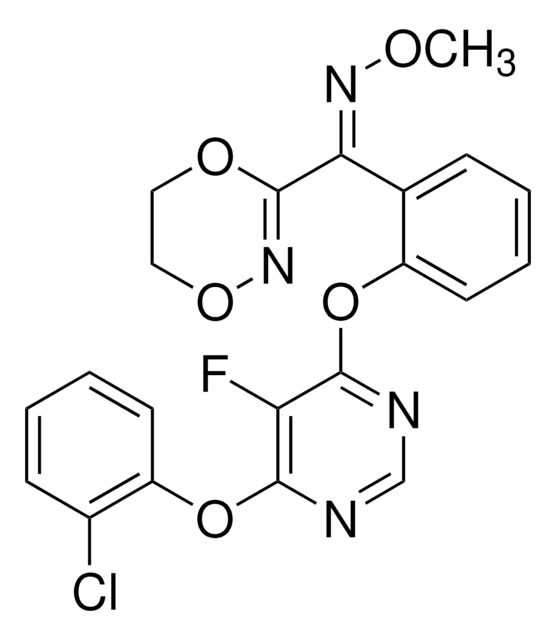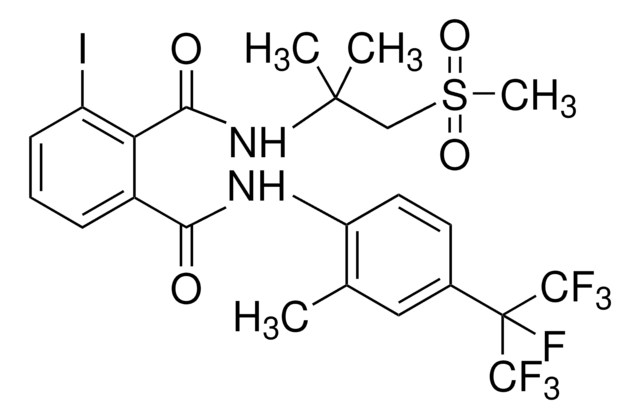33589
Clothianidin
PESTANAL®, analytical standard
Synonym(e):
(E)-1-(2-Chlor-5-thiazolylmethyl)-3-methyl-2-nitro-guanidin
About This Item
Empfohlene Produkte
Qualität
analytical standard
Qualitätsniveau
Produktlinie
PESTANAL®
Haltbarkeit
limited shelf life, expiry date on the label
Methode(n)
HPLC: suitable
gas chromatography (GC): suitable
Anwendung(en)
agriculture
environmental
Format
neat
SMILES String
CN\C(NCc1cnc(Cl)s1)=N/[N+]([O-])=O
InChI
1S/C6H8ClN5O2S/c1-8-6(11-12(13)14)10-3-4-2-9-5(7)15-4/h2H,3H2,1H3,(H2,8,10,11)
InChIKey
PGOOBECODWQEAB-UHFFFAOYSA-N
Suchen Sie nach ähnlichen Produkten? Aufrufen Leitfaden zum Produktvergleich
Allgemeine Beschreibung
Anwendung
Rechtliche Hinweise
Ähnliches Produkt
Signalwort
Warning
H-Sätze
Gefahreneinstufungen
Acute Tox. 4 Oral - Aquatic Acute 1 - Aquatic Chronic 1
Lagerklassenschlüssel
11 - Combustible Solids
WGK
WGK 1
Flammpunkt (°F)
Not applicable
Flammpunkt (°C)
Not applicable
Persönliche Schutzausrüstung
Eyeshields, Gloves, type N95 (US)
Hier finden Sie alle aktuellen Versionen:
Besitzen Sie dieses Produkt bereits?
In der Dokumentenbibliothek finden Sie die Dokumentation zu den Produkten, die Sie kürzlich erworben haben.
Kunden haben sich ebenfalls angesehen
Artikel
Determination of Neonicotinoids in Honey using a Chromolith RP-18 HPLC column and UV Detection
Protokolle
Extraction and Analysis of Neonicotinoid Pesticides from Flower Blossoms Using Supel™ QuE and Ascentis® Express
LC/MS/MS Analysis of Neonicotinoid Pesticides in Dandelion Blossoms on Ascentis® Express C18 after Dispersive SPE (QuEChERS) using Supel™ QuE
Learn more about Neonicotinoids - active substances used in plant protection products to control harmful insects.
On Friday, April 27, 2018, the European Union decided to ban the use of three neonicotinoid insecticides from use on field crops, having deemed them dangerous to bees. This application demonstrates the analysis of these banned compounds and others from dandelion blossoms using QuEChERS and LC-MS.
Unser Team von Wissenschaftlern verfügt über Erfahrung in allen Forschungsbereichen einschließlich Life Science, Materialwissenschaften, chemischer Synthese, Chromatographie, Analytik und vielen mehr..
Setzen Sie sich mit dem technischen Dienst in Verbindung.